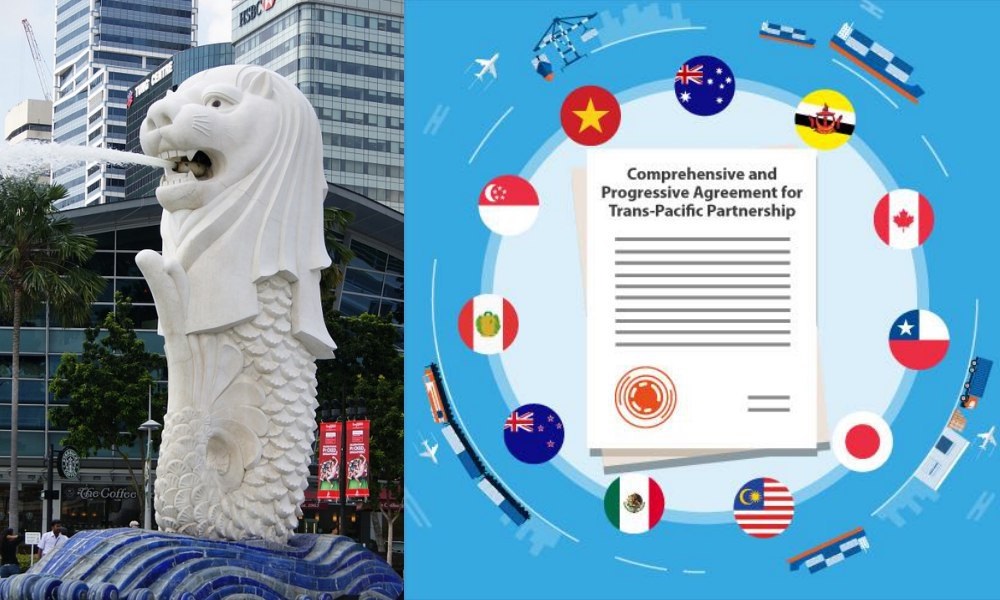Recently, Singapore ratified the Comprehensive and Progressive Agreement for Trans-Pacific Partnership (CPTPP).
In other words, Singapore is the third nation to join this Free Trade Agreement that acts as a successor to the Trans-Pacific Partnership (TPP), another agreement that involved basically the same countries, plus the US.
Why is Singapore so eager to be among the first to sign agreements and forums?Importance of being a key teammate in multilateral forums
In Diplomacy: A Singapore Experience (2011), S Jayakumar, who served as Foreign Minister from January 1994 to August 2004, revealed that Singapore's efforts to bring about new multilateral forums is to "create diplomatic space for itself and be relevant to others".
Jayakumar explains:
"Through these new international forums, we have helped to bring about interregional ties and promote new modalities of multilateral dialogues between different geographical regions.
Although the driving force for such region-to-region linkages are primarily economic, there were also strong political and strategic rationales: Anchoring major powers in our region, ensuring a balance of power and leveraging on the strengths of the broader East Asia region to engage other regions.
We did not embark on these initiatives just for the sake of starting new meetings or new forums. We were motivated by the goal of broadening our linkages with the world so as not to be constrained solely within Asean. We also felt it would assist Asean to become more relevant to other countries through its "driver's seat" role in these new forums."
Over the years, Singapore has worked hard to propose new regional and multilateral initiatives, such as the Asia-Europe Meeting (ASEM), Forum for East Asia-Latin America Cooperation (FEALAC) and Asia-Middle East Dialogue (AMED).
Finding relevance as a small state
The world would be a different place without the United States, China, Russia, India or Japan, but the world could still function without a small state like Singapore.
In his book Singapore Is Not An Island (2017), former Ambassador-at-large Bilahari Kausikan echoed similar sentiments to Jayakumar, noting that the "creation and maintenance of relevance must be the overarching strategic objective of small states".
For instance, Singapore established the Forum of Small States (FOSS) at the United Nations (UN) more than two decades ago.
And the reason for doing so? To increase the international relevance of small states with population of 10 million or less.
This also helps to ensure that Singapore's international relevance and influence goes beyond just one United Nations vote.
Soft diplomacy: Making friends
In order for multilateral forums and initiatives to work, Singapore needs friends in the international arena.
In his book, Jayakumar spoke about how the Singapore Cooperation Programme is an excellent example of Singapore's soft diplomacy.
SCP was started in 1992 to share Singapore's development experience with other developing countries.
In its first two decades, SCP trained over 80,000 officials from 170 countries.
At SCP's 20th anniversary in 2012, then Foreign Affairs Minister K Shanmugam said:
"For a small country like us, it is important to have this international network of friends. They put us in a better position to defend our interests at the United Nations, and at other international organisations.
In such forums, Singapore’s influence depends not only on our abilities and what we bring to the table, but also on the goodwill and trust that other countries have in us."
Not taking the credit
While Singapore puts in much effort to bring about new multilateral forums, a big no-no is to clamour for the publicity.
This can be seen by how Foreign Minister Vivian Balakrishnan downplayed Singapore's role in the recent Trump-Kim Summit.
Balakrishnan told the media that hosting the summit was "our contribution to world peace", adding that he told both the North Koreans and the Americans that Singapore is "there to serve tea and coffee".
As Jayakumar notes:
"At the end of the day, what is important is that the proposal is successfully implemented... This is what gives Singapore diplomatic space, credibility and relevance."
[related_story]
Top photo by Guan Zhen
If you like what you read, follow us on Facebook, Instagram, Twitter and Telegram to get the latest updates.
